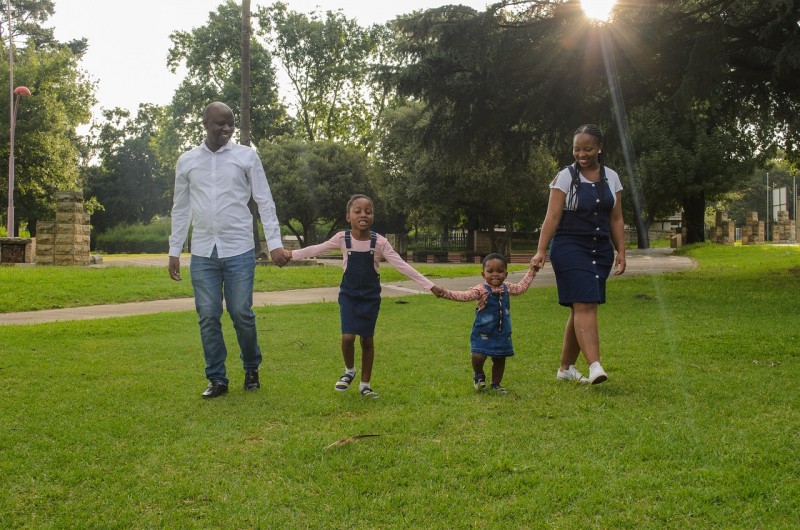Verses About Family: 5 Bible Lessons to Achieve Family Harmony
In this text, you will come across 5 valuable verses about family and other aspects of daily life that will help promote harmony in your home! They are found in the Holy Gospel of Jesus.
Who doesn't wish to find companionship, union, and respect within their family? That is, to have them connected to God and to the best energies.
With these verses, which also contribute to the spiritual strengthening of each individual and of family bonds, you will be able to overcome challenges―both inside and outside your home―with the support of those who love you.

The President-Preacher of the Religion of God, of the Christ, and of the Holy Spirit, Brother Paiva Netto, teaches us that,
“In our daily thoughts, let us always assess whether we are genuinely cherishing family. A better, happier country and consequently a balanced humanity depend on well-constituted family units, duly honored by their members and by the community. The importance of the family transcends the most common understanding. In it, human life finds its shelter. It is in the family that the most tender and sublime feelings of human beings must flourish.”
When speaking of these family units, we refer to the deep bonds of love that connect people, whether they are related by blood or not.
Keep reading, reflect upon, and put these lessons into practice. Share this article with those who are part of your journey.
Verses About Family
1. Jesus has taught: “For whoever does the will of my Father in Heaven is my brother and sister and mother.” (The Gospel according to Matthew 12:50)
In this thought-provoking verse about the family of Christ, we see that He expands the concept of family. After all, in the midst of a diverse crowd, encompassing people from various backgrounds, Jesus included everyone by also calling His mother and brothers and sisters all those who obey Divine Laws, do Good, and support their fellow beings, just as He did and taught.
Therefore, we can also do Good and become members of the Family of Jesus by recognizing this same characteristic in others and seeing ourselves as Brothers and Sisters within the Great Family called Humanity, as advocated by writer Paiva Netto.
Such view changes the way we interact with each other and helps us understand that, by following His teachings, we will establish true bonds with people around us, whether at home, at work, at school, or in our online interactions, for example.
Nurturing this fraternal bond will draw us closer to the Peace and Goodness of Christ―values that we earnestly desire for our existence, and which can be the first steps to the spiritual strengthening of our home.

Título da obra: Jesus ensina pelo litoral.
2. Jesus has taught: “Everyone then who hears these words of mine and does them will be like a wise man who built his house on the rock. And the rain fell, and the floods came, and the winds blew and beat on that house, but it did not fall, because it had been founded on the rock.” (The Gospel according to Matthew 7:24 and 25)
In this chapter of the Good News, Jesus continues with His Sermon on the Mount and presents valuable teachings for our personal and family behavior.
Especially in the verses above, we see the importance of building strong and solid foundations for family life. This is primarily achieved through our good examples.
Our decisions and how we handle situations and challenges inspire and influence other people, starting with those around us. Consequently, building the house on the rock means pursuing a well-balanced life, surrounding ourselves with good feelings, and fostering an environment for understanding to be present in our daily interactions.
Check out below three more verses about family that we’ve chosen for you!

3. Jesus has said: “I will not leave you as orphans. . . . And surely I am with you always, to the very end of the age.” (The Gospel according to John 14:18 and Matthew 28:20).
These verses of Christ express companionship and the certainty of His constant help in our lives.
If we take Him as an example, we’ll see that within the family, it is crucial to reach out and embrace the pain of our loved ones, providing genuine comfort and demonstrating our concern and support.
In doing so, we will establish Love as the foundation of our relationships. It is the great lesson that the Divine Master left us in His Supreme Order, His New Commandment:
“Love one another, as I have loved you. Only by this shall all of you be recognized as my disciples, if you have the same Love for one another.” (The Gospel according to John 13:34 and 35).
Following this Fraternal and Solidary approach of Jesus will empower us to overcome selfishness and individualism in order to extend a helping hand to those in our midst.
It is worth emphasizing that Christ’s Love is not only expressed through affection, but also through understanding, honesty, and the courage to act when corrections and improvements are needed.
The New Commandment of Jesus is the fundamental guideline for all areas of human existence and can also be considered a verse about family.
4. Jesus has taught: “If someone slaps you on one cheek, turn to them the other also.” (The Gospel according to Luke 6:29).
Many times, anger can take over us and lead to negative reactions in response to certain behaviors.
However, it was Jesus who taught us to “turn the other cheek,” that is, responding in opposition to displays of hatred and violence, thus breaking the harmful cycle that disrupts our harmonious coexistence.
It’s important to clarify that He does not endorse abusive and violent relationships. In such cases, it is imperative to seek help and take prompt measures to halt the situation.
In this verse, Christ encourages us not to pay back in kind. This is actually an act of wisdom capable of breaking the patterns of disrespect, revenge, and slander, fostering the restoration of harmonious family relationships.
Furthermore, it serves as a way to prevent intolerance from becoming the “default” approach for addressing differences within our homes.
Regarding this topic, the President-Preacher of the Divine Religion explained in his article “What Does ‘Turning the Other Cheek’ Mean”:
“It also means that we should never tune into hatred. ‘Turning the other cheek’ means leading those who try to offend us to realize that they are harming themselves, since hatred is a weapon turned against the heart of the one who hates. ‘Turning the other cheek’ is an act of courage, an exercise of patience; it is not an action for the passive and complacent.”
5. Jesus has taught: “Do not judge, and you will not be judged. Do not condemn, and you will not be condemned. Forgive, and you will be forgiven.” (The Gospel according to Luke 6:37).
Every family faces its challenges, right? Therefore, we should understand that they are part of human relationships. To avoid creating distance and deep resentments, we must actively practice non-judgment, patience, dialogue, and forgiveness.
This can be a long and demanding process, which may require significant perseverance and resilience from us. But whenever we turn to Jesus as our ultimate role model in all circumstances, we find our starting point.
By delving into His Gospel and Apocalypse, in the light of His New Commandment of Love, we embark on a journey of self-improvement, thus renewing our inner selves and contributing to family union and harmony.
READ MORE
+ How Should We Exercise Our Faith?
+ A Soothing Prayer for the Anxious Heart



